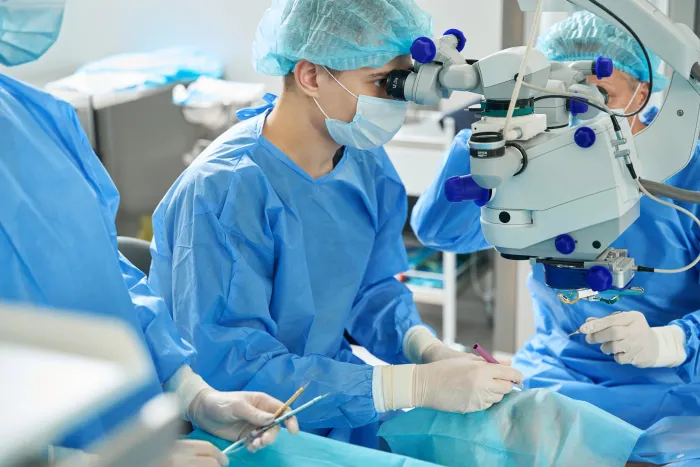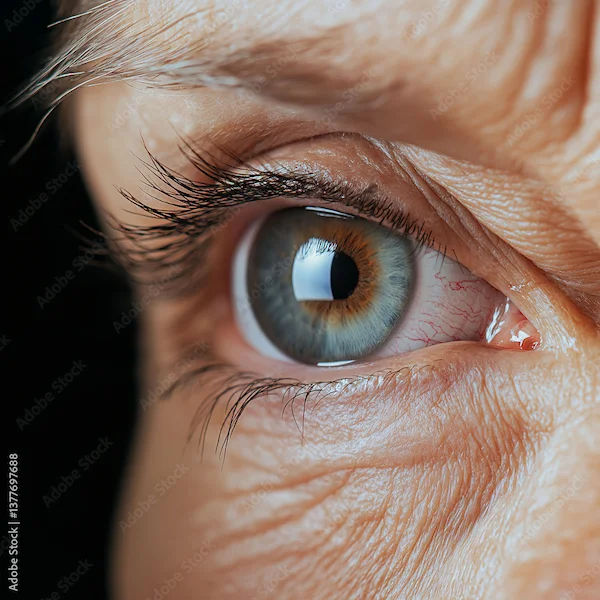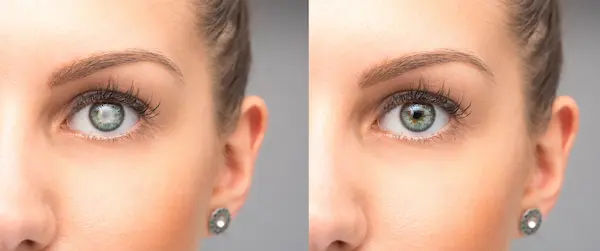How Long After Cataract Surgery Can You Swim In The Ocean?
Wondering how long to wait before swimming in the ocean after cataract surgery? Learn the recommended recovery time and safety tips to protect your eyes while healing.

Written by Dr. Dhankecha Mayank Dineshbhai
Reviewed by Dr. J T Hema Pratima MBBS, Fellowship in Diabetes Mellitus
Last updated on 13th Jan, 2026

Introduction
Cataract surgery is a common and generally safe procedure that helps restore clear vision by replacing a cloudy lens with an artificial one. After surgery, patients often wonder when they can resume their normal activities, including swimming—especially in the ocean. If you’ve recently had cataract surgery or are planning to, this article will guide you on when it’s safe to swim in the ocean and how to protect your eyes during recovery.
Understanding Cataract Surgery and Recovery
Cataract surgery is a quick outpatient procedure, usually taking less than 30 minutes. However, the recovery period is crucial for ensuring proper healing and avoiding complications. Your eye needs time to adjust, and the incision site must heal completely before exposing it to potential irritants like saltwater, sand, or bacteria.
Immediate Post-Surgery Care (First Week)
Avoid water exposure: For the first week after surgery, you should avoid any water contact with your eyes, including swimming pools, oceans, and even showers where water might splash into your eyes.
Use protective eyewear: Your doctor may provide a protective shield to wear while sleeping to prevent accidental rubbing or pressure.
Follow prescribed eye drops: Antibiotic and anti-inflammatory drops help prevent infection and reduce swelling.
Weeks 2-4: Gradual Recovery
Light activities: You can resume most daily activities, but avoid strenuous exercise or swimming.
Still no ocean swimming: The ocean contains salt, bacteria, and sand, which can irritate your healing eye and increase infection risk.
After 4-6 Weeks: Safe for Ocean Swimming
Doctor’s approval first: Always check with your ophthalmologist before swimming in the ocean.
Use waterproof goggles: Even after full recovery, wearing goggles helps protect your eyes from saltwater and debris.
To Know More Consult Top Ophthalmologists
Why Is Waiting Important?
Waiting is important because it allows your body the necessary time to heal properly, reducing the risk of complications and ensuring the best possible outcome.
1. Infection Risk: The ocean contains bacteria and microorganisms that can cause infections like conjunctivitis or even more severe issues if they enter a healing eye.
2. Irritation from Saltwater: Salt can cause dryness and discomfort, delaying healing.
3. Physical Strain: Swimming involves movement that may increase eye pressure, which is risky in the early recovery phase.
Tips for Safe Swimming After Recovery
Once your doctor gives the green light, follow these precautions:
Wear high-quality goggles to keep saltwater out.
Rinse your eyes with clean, fresh water after swimming.
Avoid rubbing your eyes, even if they feel irritated.
Use lubricating eye drops if your eyes feel dry.
When to Seek Medical Help?
Contact your doctor immediately if you experience:
Increased redness or pain
Blurred vision after swimming
Sensitivity to light
Discharge from the eye
Conclusion
Patience is key after cataract surgery. While swimming in the ocean is a refreshing activity, waiting 4-6 weeks (with your doctor’s approval) ensures your eyes heal properly. Protect your vision by following post-op care instructions and using goggles when you return to the water.
If you have concerns about your recovery or need personalised advice, consider booking a consultation with an eye specialist on Apollo 24|7.
Consult Top Ophthalmologists
To Know More Consult Top Ophthalmologists
Dr. Padmini S
Ophthalmologist
4 Years • MBBS,MS
Bengaluru
Apollo Medical Center, Marathahalli, Bengaluru

Dr. Karan Paswan
Ophthalmologist
7 Years • MBBS,MS (Ophthalmology)
Kolkata
VDC Clinic, Kolkata

Dr. K Sreekumar Reddy
Ophthalmologist
26 Years • MBBS MD (Ophthalmology) EGESTOLP
Hyderabad
Apollo Hospitals Jubilee Hills, Hyderabad
(50+ Patients)
Dr Kanse Vaibhav
Ophthalmologist
10 Years • MBBS, DO, MS, DNB
Pune
Apollo Clinic, Nigdi, Pune

Dr. Zennat Tajmin Shah
Ophthalmologist
24 Years • MBBS,DNB (Ophthalmology)
Kolkata
Titanium Eye Care, Kolkata
Consult Top Ophthalmologists
Dr. Padmini S
Ophthalmologist
4 Years • MBBS,MS
Bengaluru
Apollo Medical Center, Marathahalli, Bengaluru

Dr. Karan Paswan
Ophthalmologist
7 Years • MBBS,MS (Ophthalmology)
Kolkata
VDC Clinic, Kolkata

Dr. K Sreekumar Reddy
Ophthalmologist
26 Years • MBBS MD (Ophthalmology) EGESTOLP
Hyderabad
Apollo Hospitals Jubilee Hills, Hyderabad
(50+ Patients)
Dr Kanse Vaibhav
Ophthalmologist
10 Years • MBBS, DO, MS, DNB
Pune
Apollo Clinic, Nigdi, Pune

Dr. Zennat Tajmin Shah
Ophthalmologist
24 Years • MBBS,DNB (Ophthalmology)
Kolkata
Titanium Eye Care, Kolkata




